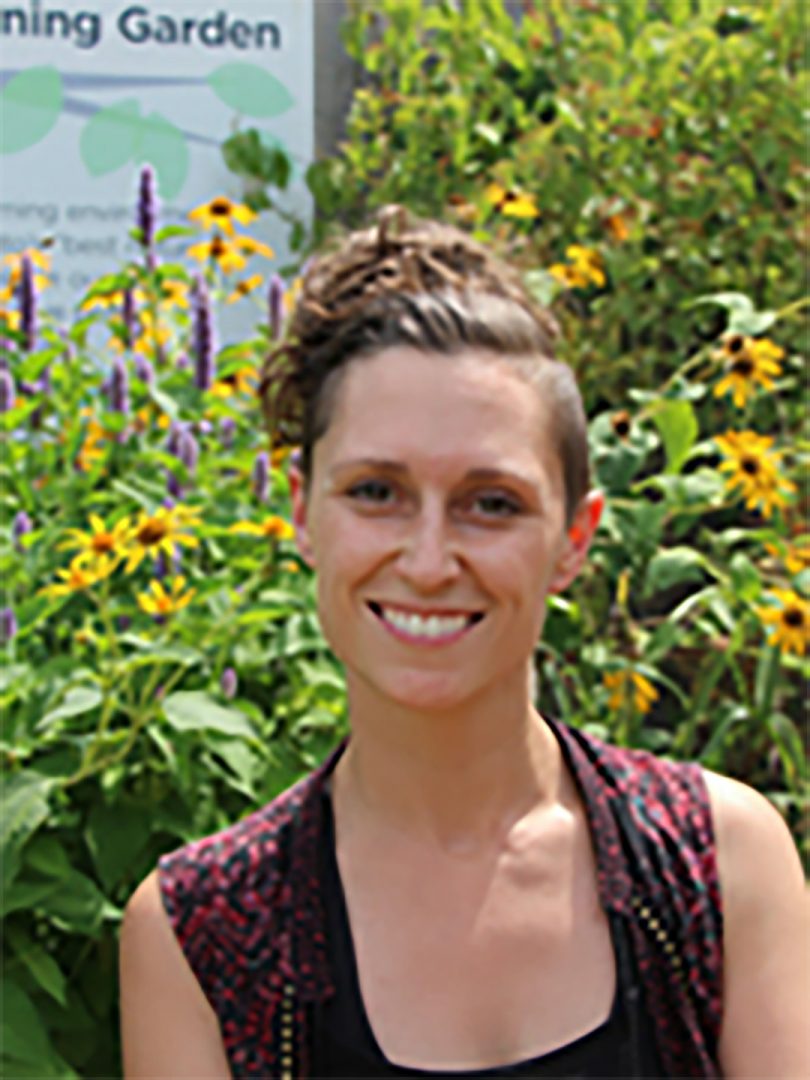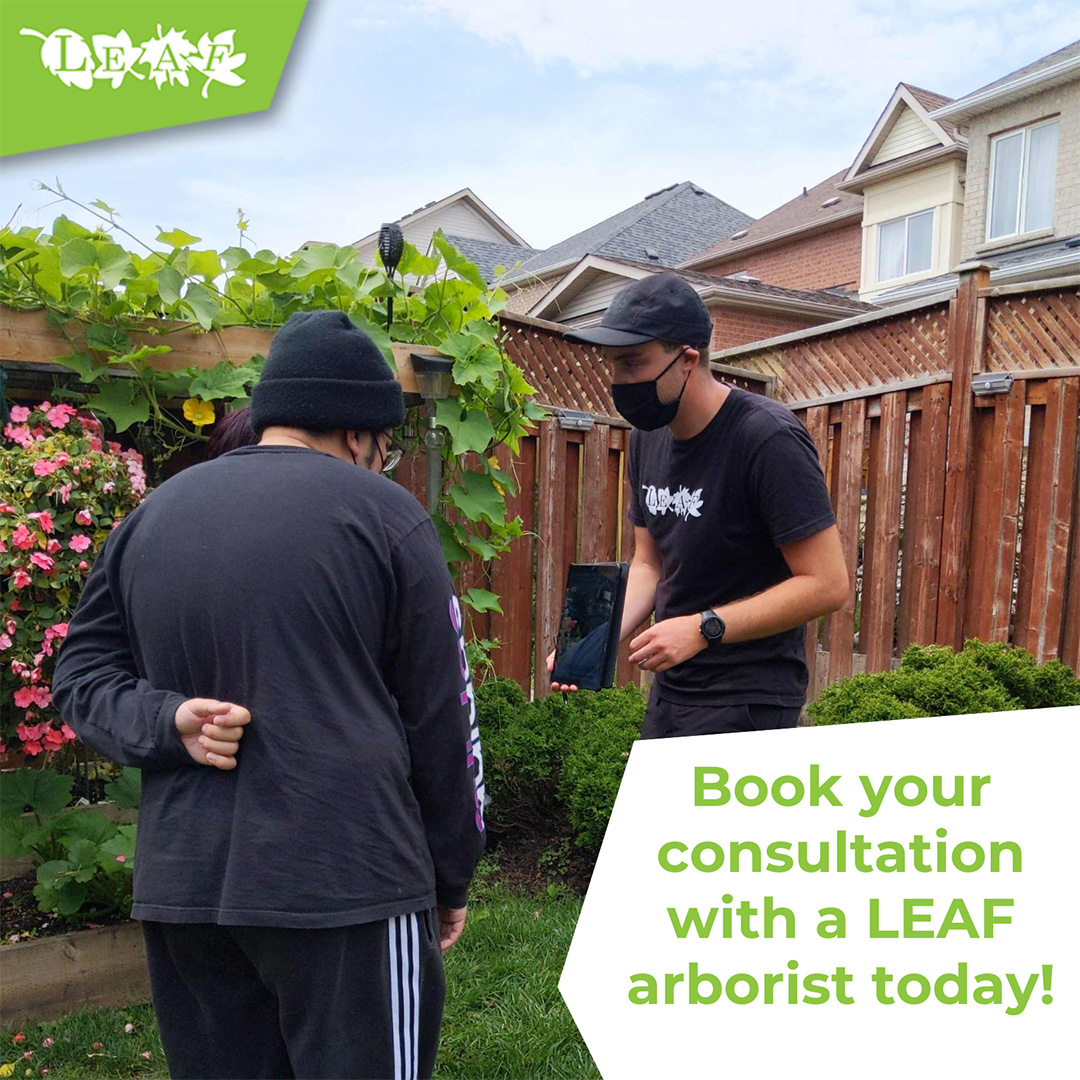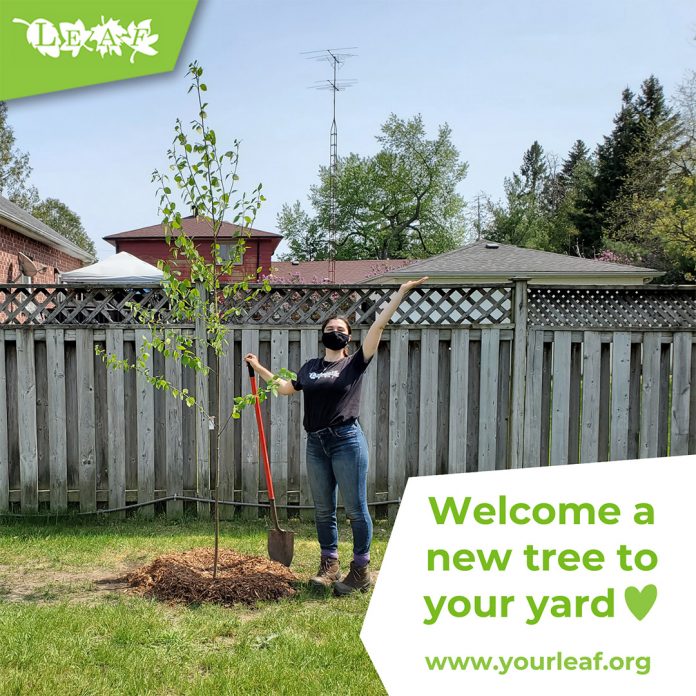Nature is beautiful. However, with more than 80 per cent of the Canadian population living in urban areas, people can often feel disconnected from it.
The organization Local Enhancement and Appreciation of Forests (LEAF) aims to change that in Durham Region.
It has planted more than 460 native trees and 340 native shrubs at more than 360 properties in the region since 2020.
In 2010, Durham Region had about 24 per cent urban forest coverage with a goal of reaching 30 per cent. That’s the recommended minimum for an urban area, according to Tree Canada.
LEAF started in Toronto and aims to promote urban planting and reconnect people with nature. The non-profit educates people about trees and shrubs and inspires them to get involved with urban forests.
In addition, LEAF offers a range of educational and outreach initiatives. This includes workshops, field trips, and other events designed to educate the community about the value of urban forests.
They actually reduce air temperatures, according to Erin MacDonald, the acting executive director at LEAF.
“Trees have been shown to literally cool the air around them,” she says.
MacDonald says LEAF is working towards increasing canopy cover in the urban environment, supporting biodiversity and mitigating the effects of climate change through numerous projects.
One of those is called the backyard tree planting program, which is about “educating folks about the value of planting native species, the function of the urban forest, the value of green infrastructure in the urban landscape,” according to MacDonald.

LEAF ensures its clients understand the value of planting native species as opposed to invasive ones. It sends an arborist for an in-person consultation to help residents find out what species are right for their yard.

LEAF’s restoration planting – tree planting events on public lands – “build more naturalized areas within the urban environment,” according to MacDonald.
Over the pandemic, LEAF’s education events have been virtual. MacDonald says they’re excited to start offering them in person again next year.
“We will be doing at least a few tree tours in Durham Region where folks can come out, they can learn about different species, learn how to identify them and also learn how they can sort of be champions for the urban forests in their own communities,” she says.
Ian McVey, the manager of sustainability with the Region of Durham, says part of the reason Durham partnered with LEAF is to bring urban residents closer to nature.
“It’s really important for us as human beings to have a connection with nature and not just to live in a concrete jungle,” he says. “I think through COVID a lot of us realized…the value and importance that that provides to our mental health and wellbeing. It’s just to really provide us with a greater connection to the natural world.”

McVey says the biggest challenge humanity faces in the fight against climate change is apathy.
“I think we need to be understanding that however little it is there are steps that we can all be taking in our day-today lives to be more environmentally friendly,” he says.
MacDonald says urban tree planting brings “huge value” in improving the quality of life for people who live in cities.
“But that alone is absolutely not enough,” she says. “Preserving the forests that we do have is fundamental.”
Anyone can learn more about LEAF’s programs or apply for a consultation on the organization’s website. A full-service consultation costs $150-$220 per tree, including an in-person visit by an arborist, while the do-it-yourself version costs $100-$170 and includes a virtual conversation with an arborist.




